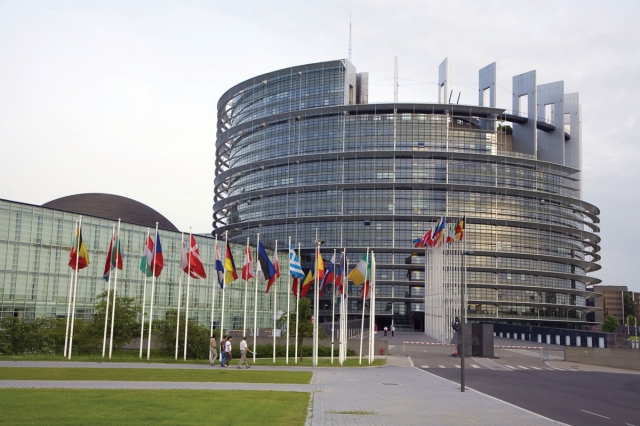News By Date
01.04.2016
30.03.2016
29.02.2016
11.01.2016
19.12.2015
16.11.2015
01.10.2015
25.09.2015
01.08.2015
01.07.2015
10.06.2015
23.05.2015
30.11.-0001
Review of the European Neighborhood Policy: how new ENP could reflect on Georgia
On July 6-8, European Parliament’s plenary session is taking place in Strasburg.
Among many important topics, the Members of the European Parliament (MEPs) will discuss the European Neighborhood Policy (ENP); a draft report on the review of the ENP will be presented at the session.
The European Neighborhood Policy (ENP) was developed in 2004 with the objective of avoiding the emergence of new dividing lines between the enlarged EU and its neighborhood. This framework is proposed to the 16 of EU's closest neighbors out of which ten are southern neighbors, covered by a sub-initiate Euro-Mediterranean Partnership (EUROMED), and another six, Eastern Partnership (EaP) countries, uniting post-communist states, including Georgia, into one policy framework.
With the emergence of new security threats from Russia on EU’s eastern border, and the rise of extremist movements in the southern neighborhood, the European Commission launched a consultation process on the review of the ENP in March 2015.
The draft report, to be discussed by the MEPs in Strasburg, shows potential features of EU’s new neighborhood policy.
Differentiation - the report stresses that differentiation should take place not only between Eastern and Southern partners but also among the ENP countries themselves and develop into a more tailor-made and flexible policy framework able to adapt to the diversity that exists.
Neighbors of neighbors –this notion is the biggest novelty of the new ENP. The report underlines the importance of ensuring that the ENP is part of the EU’s broader external policy and of taking into account the other strategic players that have influence on the neighborhood – the ‘neighbors of neighbors’.
Security dimension – the paper acknowledges that security and stability are basic concerns in the neighborhood and that current developments in the region call for a strong security component in the ENP, which has regrettably been missing to date.
The new ENP, if updated according to the above mentioned features, will impact the EU’s approach towards Georgia. In comparison with earlier years, in the frames of the new policy Georgia will not be assessed by the EU together with the other five post-communist states. Instead the EU will take an individual case-by-case policy approach.
The new ENP will also make a difference with regards to the Russian factor. While theEU ignored Russian threats earlier, the new EU policy towards Georgia will be shaped with the Russian factor taken into consideration. Overall, the EU’s involvement in Georgia will be modified according to the existing security dilemmas.
An updated neighborhood policy will be launched once the position of the European Commission and European Parliament are accepted by the EU Member States.
Nino Japarashvili
08 July 2015 13:34












